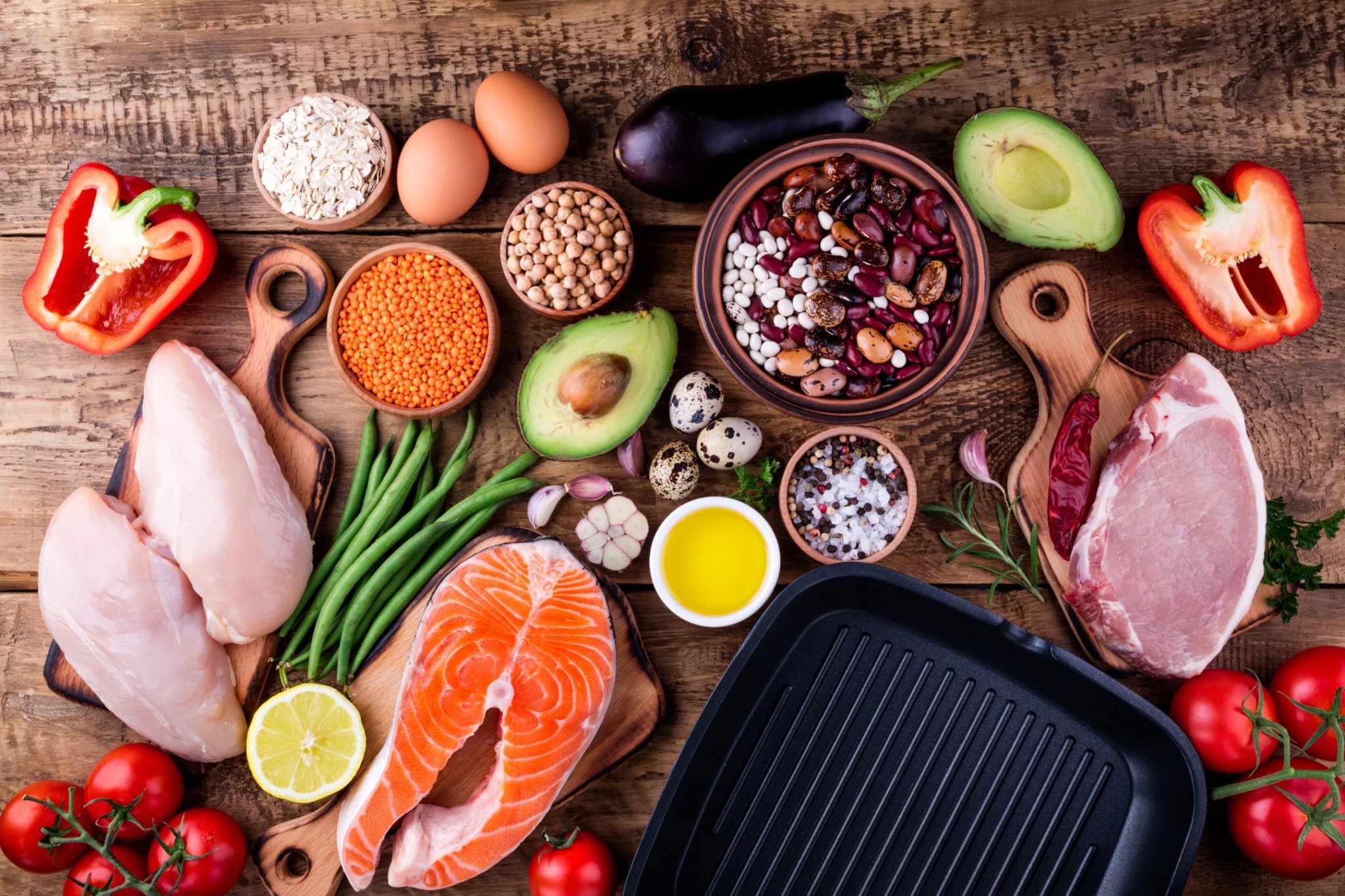We have all heard that breakfast is the most important meal of the day. At one point, this was just wisdom that your grandmother passed down to your mother and so on. But nutrition research and studies on weight loss seem to support this bit of “grandma wisdom.” People who eat breakfast tend to be leaner and healthier than those that do not.
Sign up here to get the three recipes from this article plus my two favorite smoothies and a healthy pancake recipe sent to your inbox.
Is breakfast the most important meal of the day for PCOS?
Well, it all comes back to our old friend insulin resistance.
Regardless of weight, women living with PCOS are more likely to have some level of insulin resistance. So taking steps to keep your blood sugar balanced just makes good sense. Plus, even if you do not have insulin resistance, the nutrition recommendations suggested for improving insulin sensitivity will still improve your well being.
Eating a breakfast that includes a mix of unprocessed carbohydrates, protein, and healthy fat will help set the stage for a day of balanced blood sugars. Not only that – meals that include all three of these elements will keep you feeling satisfied for longer and fight energy slumps. So if you have PCOS, it is a good idea to eat blood sugar balancing meals. And you will have a much easier time managing insulin resistance and feeling energized all day if your first meal of the day follows some basic principles.
Slow Down to Get the Most Out of Breakfast
Unfortunately, breakfast is often our most rushed meal of the day. When you feel short on time, making a good food choice not only becomes difficult – it also becomes stressful. Starting out your day with stress hormones flowing and a sugary breakfast cereal spiking your insulin levels will make mornings unpleasant and inflame PCOS symptoms.
Eating slowly without any distractions (like checking email on your phone) is an excellent way to reduce stress and watch your weight.
In fact, there is plenty of research that connects eating quickly with being overweight and stressed. For example, a study in 2011 found people who described themselves as fast eaters are up to 115% more likely to be obese, compared to slower eaters.
One way to keep breakfast from being rushed is to have a few super easy options ready in your kitchen. The three breakfast ideas below are what I eat most days. I spend just a few minutes cooking then I sit down relax and enjoy some healthy eats!
Overnight Oats
- 1 cup plain almond milk yogurt
- 1/3 cup uncooked oats
- 1/4 of an apple diced
- 10 grapes sliced in half (you could also use fresh berries)
- 6 walnuts
- 2 tablespoons of almond milk
- 3 drops liquid stevia
- Cinnamon to taste
Instructions
Thoroughly mix all the ingredients together the night before. Store in a glass container, covered in the refrigerator. Note: If you eat dairy, you could substitute the almond milk yogurt for organic plain greek yogurt.
Quick Avocado Toast
- Single serving of pre-made guacamole, like Wholly Guacamole
- 2 or 3 eggs either hard-boiled and sliced or cooked any way you prefer
- 2 slices of tomato (optional)
- 2 slices of Ezekiel sprouted grain bread, toasted
Instructions
Spread the guacamole over your toast top with sliced hard-boiled egg or scrambled eggs. Salt and pepper to taste. You can use sweet potato toast if you have gluten sensitivities.
Chicken & Apple Breakfast Sausage with a Baked Sweet Potato
- 4 Applegate Naturals Chicken and Apple Breakfast Sausage Links
- 1 sweet potato
- 1/2 tablespoon coconut butter
Instructions
Bake the sweet potato at 400°F for 45 minutes. You can do your hair and makeup while it bakes or just microwave a potato for 8-10 minutes. Cook the sausage according to the manufacturer’s instructions. Top the sweet potato with coconut butter and enjoy!
Note: I like Applegate breakfast sausages because they have just 3 ingredients: chicken, dried apples, and spices. There are other high-quality brands of chicken or turkey breakfast sausage you could use. Look for something that will snag you at least 12 grams of protein.
Sign up here to get the three recipes from this article plus my two favorite smoothies and a healthy pancake recipe sent to your inbox.
What to Look for in a Breakfast Recipe
Like I mentioned before, a PCOS-friendly breakfast should include three main elements: minimally processed carbs, lean protein, and healthy fats.
Examples of Minimally Processed Carbohydrates:
- Oats
- Quinoa
- Beans and lentils
- Fruit
- Root vegetables
- Sweet potatoes and white potatoes
- Sprouted grain bread
Examples of Lean Proteins:
- Eggs
- Poultry sausage
- Smoked salmon
- Organic tofu
- Organic Greek yogurt
- Almond milk yogurt
- Protien powder
Examples of Healthy Fats:
- Olive oil
- Coconut oil and butter
- Avocado
- Nuts and seeds
- Nut butters
Bonus: Add in colorful fruits and veggies
You can take your nutrition game up a notch by looking for breakfast recipes that included colorful fruits and veggies. Fruits and veggies are loaded with vitamins and phytonutrients that help our bodies do everything from make hormones to grow healthy babies. It just makes good sense to start out the morning with a vitamin boost!
Imagine waking up and looking forward to sitting down to a nice meal, and then leaving your house confident that you have nourished your body for the challenges ahead.
Many of my coaching clients say that breakfast was their biggest challenge, they often made poor choices in a hurry and felt depleted before lunchtime even rolled around. Setting up a sensible breakfast routine transformed their day! I hope these recipes inspire you to give breakfast a try.







